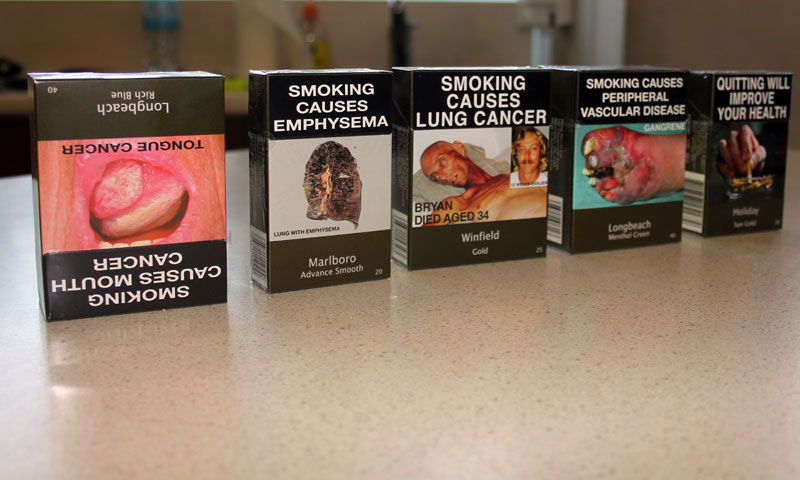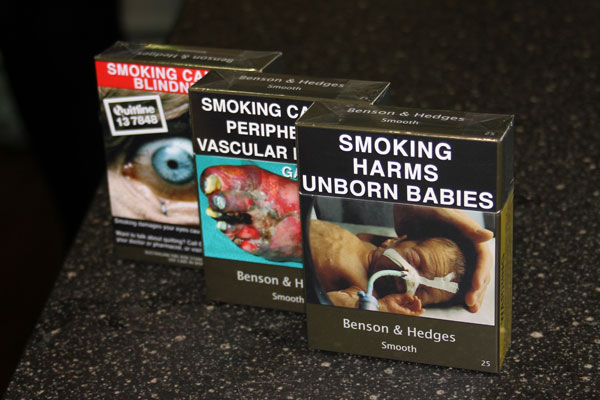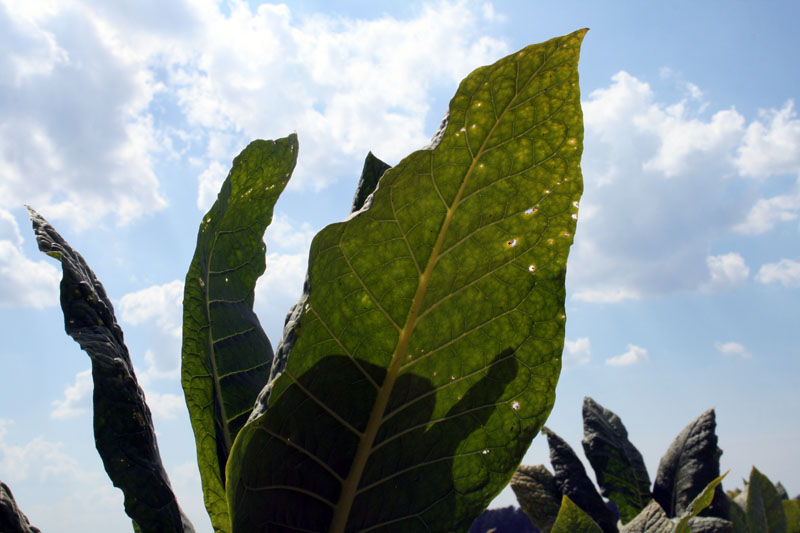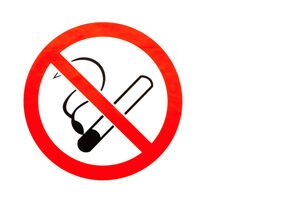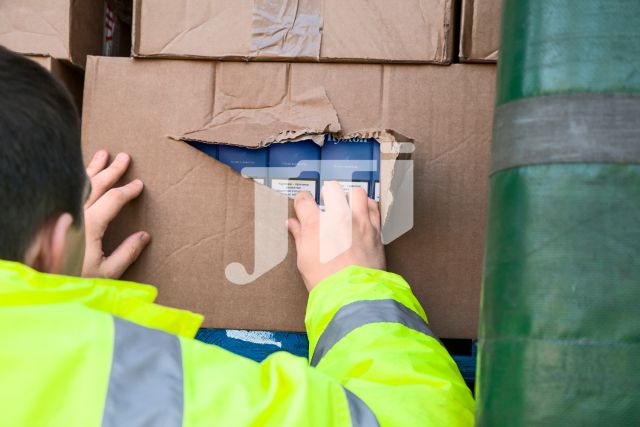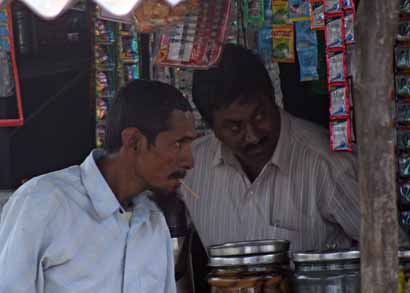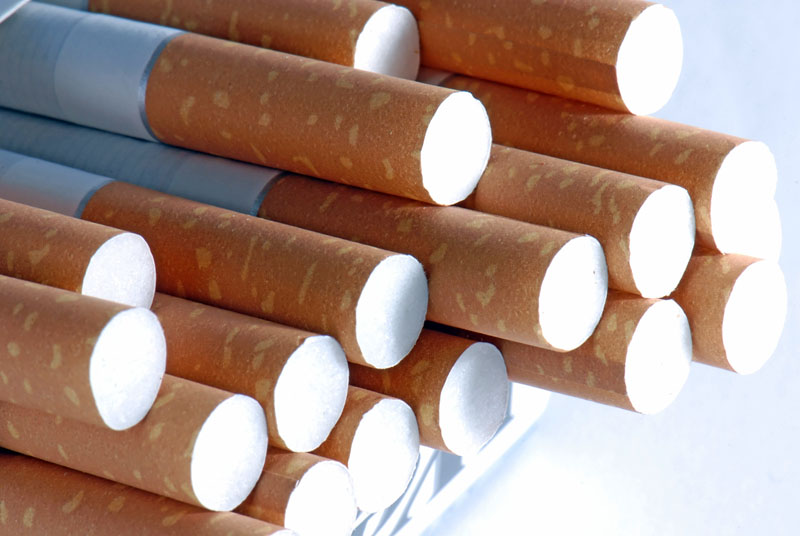Sri Lanka’s Cabinet has approved a proposal for the imposition of standardized tobacco packaging, according to a story by Manjari Peiris for the Asian Tribune.
The proposal was said to have been submitted by the Minister of Health, Dr. Rajitha Senaratne.
The story said that standardized packaging required the removal of all branding, including colors, imagery, corporate logos and trademarks.
Brand names were printed in a specified size and font, and in a specified position on the pack.
Otherwise, packs were presented in a standard, specified color, and included health warnings, mandated information and tax stamps.
It wasn’t clear whether the above specifications were the ones proposed by the health minister and accepted by the Cabinet; or whether they were simply those generally used in countries where such packaging has been introduced already.
Tag: Sri Lanka

More plain packaging

Black or white unattractive?
The government of Sri Lanka is planning to introduce a requirement that tobacco products are sold in standardized packaging, according to stories in The Daily News and The Times.
The Daily News reported that the Cabinet of Ministers had approved an amendment to the National Authority on Tobacco and Alcohol Act that would usher in packaging that, presumably with the exception of health warnings, would be in black and white.
The packs would bear only the name and quantity of the product, and information required by the government, such as health warnings.
Meanwhile, the Times story quoted Cabinet spokesman Dr, Rijitha Senaratne as saying that the standardized packaging would have to be in a single non-attractive color, such as white or black.
Cultivation ban opposed
The government of Sri Lanka has been urged to withdraw a proposed ban on tobacco cultivation in the country, according to a story in The Colombo Gazette.
The All Ceylon Cigarette Tobacco Barn Owners’ Association said that since 2015, the Presidential Task Force (PTF) on Drug Prevention had recommended ‘unreasonable restrictions’ on tobacco cultivation, such as the prohibition of using even barren marginal paddy lands for such production.
In a letter to the President, the association said that despite tobacco farmers being the key drivers of national and rural economic growth, they were not consulted before such adverse recommendations were made.
‘Tobacco is a cash crop which was introduced to farmers by the Sri Lankan government in the 1950’s and fully supported by successive governments until very recently,’ the association said. ‘Under the patronage of previous governments, tobacco cultivation has been an integral part of the agriculture communities spanning around 80 years and three farmer generations.’
It said that while the proposed ban on tobacco production was understood as being driven by a World Health Organization agenda, it was clearly not the solution for the smoking problem in society.
The association urged the government to continue to allow tobacco production until an alternative crop that matched tobacco in economic value was introduced to farmers.
Exclusion zone contracts
Sri Lanka’s Minister of Health, Nutrition and Indigenous Medicine, Dr. Rajitha Senaratne, has proposed a reduction in the size of the proposed cigarette-sales exclusion zone around the country’s schools, according to a story in The Colombo Page.
The gazette notification of the ban is to be made on April 7, but whereas it was to have been an exclusion zone based on a 500-meter radius, that seems likely to be reduced to 100 meters.
Meanwhile, the minister is said to have proposed raising the minimum age for buying cigarettes from 18 to 20.
The story indicated that cabinet approval for the revisions was likely to be obtained in the near future.
Farming semantics
The Ceylon Tobacco Company (CTC) is luring local farmers into cultivating tobacco by providing inputs and loan facilities, and by functioning as a direct buyer of their produce, according to a story in The Island, citing new research.
The research, which looked at tobacco cultivation in Sri Lanka and its social impact, was conducted by the Presidential Task Force on Drug Prevention (PTFDP) and the Center for Combating Tobacco (CCT) at the Faculty of Medicine, University of Colombo.
The research results were announced on Tuesday by the directors of the PTFDP and CCT Dr. Samantha Kithalawaarachchi and Dr. Mahesh Rajasuriya.
The report is said to claim that the CTC tries to attract small-scale farmers through social welfare projects, while the company’s close relationships with politicians in the government are being exploited to sustain the tobacco business.
The report says that such interventions by the tobacco company have to be stopped if the government’s goal of ending tobacco cultivation by 2020 is to be achieved.
Nevertheless, the CTC’s alleged efforts seem to have been in vain, or even counterproductive. According to the report, there has been a significant decrease in the number of tobacco farmers in Sri Lanka owing to the announcement of an ‘imminent tobacco ban by the government’.
The researchers take this decrease to mean that nearly all tobacco farmers, kiln owners and labourers have vocational options. And because of this, the research team has called for stopping the use of the term ‘tobacco farmers’.
Support for tobacco control
The British government’s Department of Health is committing £15 million to bolster international support for a tobacco control project in Sri Lanka, which is believed to have the world’s highest rate of oral cancer among men, according to an EconomyNext story.
The new project will promote accelerated implementation of the World Health Organization’s Framework Convention on Tobacco Control in low- and middle-income countries, with Sri Lanka one of 15 priority countries.
The British High Commissioner to Sri Lanka James Dauris said 60 countries had applied for support from the WHO.
‘Priority countries weren’t selected on the basis only of need, but also on level of commitment,’ he said in a statement.
Tobacco use was one of the principal causes of oral cancer and in Sri Lanka oral cancer was the most common form of male cancer, Dauris said.
“I understand that Sri Lanka is the only country in the world where this is so,’ he added. “This alone is a good argument for investing in change.”
Evidence from around the world confirmed that measures that reduced the burden of tobacco-related death and disease, freed-up money and resources that could be spent and invested in more productive ways.

Ban shows double standards
Sri Lanka’s ban on chewing ‘smokeless tobacco’ has come under criticism by people who say that, in not banning smoking, the government is adopting double standards, according to a story by Chrishanthi Christopher for The Sunday Times.
The government recently banned smokeless tobacco through a gazette notice after it was approved in parliament in April 2017.
The notice banned the manufacture, sale and possession of all smokeless tobacco products, and mixtures that contain tobacco, including the betel quid, which has tobacco strips.
However, the growing, chewing and selling of betel leaves are not banned.
A recent World Health Organization survey was said to have shown that six percent of school children were chewing commercially-produced arecanut.
The chairman of the National Authority on Tobacco and Alcohol, Dr. Palitha Abeykoon, said the survey had shown that many of the school children were addicted to arecanut, which they kept under their tongues and used for the high it could produce.
The finding had necessitated the ban on smokeless tobacco products, he said.
The aim of the ban was reportedly not to deprive people of their traditional betel chewing habits but from using tobacco in the betel quid.
Chewing smokeless tobacco, unlike traditional betel chewing, was said to be ‘most dangerous and addictive, killing people within two years’.
The smokeless-tobacco products, which were said to contain a mixture of arecanut, tobacco, sweeteners and spices, were said to come from India, Pakistan and Bangladesh.
Interestingly, the story said, these products were banned in the countries that exported them.

Illegal trade on a high
With the arrival in Sri Lanka of record numbers of illicit cigarettes, smoking is on the rise despite the government’s ‘heavy regulations and high taxes’, according to a story by Nishel Fernando for Ceylon Today.
In an exclusive interview, Ceylon Tobacco Company’s (CTC) MD and CEO Michael Koset told Ceylon Today that smoking in the country was growing slightly year on year because the government’s tax hike had resulted only in a shift in smoking from licit cigarettes to illicit cigarettes and bidis.
As a result of the government’s tax hike in October and the introduction of VAT in November, the illegal tobacco trade had increased to record levels, he said.
The illegal trade was estimated to reach about one billion cigarettes this year, which meant that it would account for 30 percent of overall cigarette consumption.
Last year, the illegal trade was said to have accounted for one percent of overall consumption.
Koset said that tax hikes hit both the licit cigarette industry and government revenue.
During the first quarter, 35.6 million illicit cigarettes were ‘detected’, up from four million during the first quarter of 2016. And since only one in 10 illicit cigarettes was detected, an estimated 320 million illicit cigarettes with a market value of Rs16 billion were thought to have entered the market during first quarter of 2017.
The estimated loss to government revenue due to illicit cigarettes was Rs13 billion during the first quarter.
At the same time, the licit cigarette sales volume had fallen 29 percent during the first quarter of this year compared to that of the same period of 2016.
As a consequence of this, CTC’s contribution to government revenue had declined by 11.1 percent to Rs19.7 billion from Rs22.2 billion.

Retailers call for restraint
The Sri Lanka Tobacco Retailers’ Association has urged the government to act with restraint when taxing and regulating tobacco products, according to a story in The Daily News.
Representatives of the association last week met the newly-appointed Finance Minister, Mangala Samaraweera, to highlight several issues facing tobacco traders.
They said that the association’s membership of more than 100,000 had been adversely affected by the government’s tax hike on tobacco products in October.
The tax hike had impacted livelihoods severely because it had affected sales of other products that were normally bought by tobacco consumers entering their shops.
Many tobacco consumers had switched to illicit products so no longer entered their shops.
The representatives asked the minister to maintain the prices of licit tobacco products at reasonable levels, not implement a proposed ban on single-stick sales, and not introduce regulations that would affect their business and livelihoods in a drastic manner.
They said that tobacco traders had conducted their businesses in an ethical manner, respecting the laws and regulations applying to the tobacco trade.

Herbal project derailed
A multimillion-rupee project to roll out Sri Lanka’s first-ever locally-produced tobacco- and nicotine-free herbal cigarette has been derailed following unexpected ‘regulatory hiccups’, according to a story in The Island.
And developments surrounding the project have led the Customs department to detain a consignment of one million filter tubes that were being imported to kick-start the project.
The consignment was detained by Customs following objections raised by the National Authority on Tobacco and Alcohol (NATA).
“As the proposed herbal cigarette does not relate to tobacco, NATA is not directly involved, but our expert panel expressed the opinion that it could ‘encourage smoking’, Dr. Palitha Abeykoon, chairman of the regulatory authority, said.
The exasperated investor, P. H. P. Samantha, was quoted as saying that he was devastated.
Under the proposed project, herbal cigarettes were to be manufactured under the brand Lion Heart at a facility in Ambalangoda, a southern area famous for its large-scale cinnamon plantations in the Galle district.
“I anticipated smooth sailing after complying with all the stipulations to secure the import license,” said Samantha. “Fifty machines to manufacture the herbal product were also brought down earlier as the proposed project was given the green light by the authorities.”
The new product was to be aimed at the local market, but there were plans also to export it to Bangladesh, South Korea and Japan.
Samantha said that the product had been tested on key parameters by the Industrial Technology Institute (ITI), ‘where the literature states that it is cancer safe as the cigarette contains 100 percent cinnamon as the key ingredient’.

